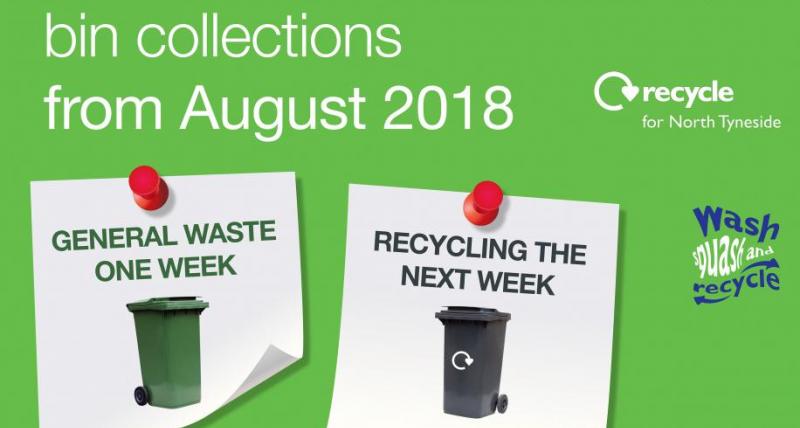
Councillors are set to usher in a greener era for North Tyneside when they are asked to formally agree the switch to alternate weekly bin collections.
The council’s cabinet will meet on Monday 25 June to authorise the start of the new collection schedule in late August, which brings the council in line with more than 200 councils across the country.
The new service, which will see general waste collected one week and recycling the next, aims to deliver a string of environmental benefits such as an increase in recycling rates and a predicted drop of 4,000 tonnes a year in landfill waste.
The change will also help the council achieve national recycling targets, while also reducing vehicle mileage by 10,000 miles a year. The alternate weekly model is recognised across the country as an effective and evidence-based way to boost recycling rates and reduce landfill waste, with councils moving away from weekly collections since the start of the decade.
More than 75% of councils already operate an alternate weekly service, including Northumberland, Newcastle, Gateshead, South Tyneside and Durham.
The council believes that most households should be able to manage under the new arrangements. To help avoid confusion around what can and can’t be recycled, the council has provided extensive advice and information on its website, including an A-Z of rubbish and recycling, to help residents separate their waste and do more recycling.
Councillors have also taken onboard residents’ concerns about bin capacity, and the cabinet will also consider making an exception policy, in which households of six or more people, and households that produce excessive medical waste, may be eligible to apply for a larger bin.
Councillor Carl Johnson, cabinet member for the environment, said: “The move away from weekly bin collections is something that has been happening across the country over a long period of time, and it’s time that we change the way we manage rubbish and recycling here in North Tyneside.
“We know from speaking to our council colleagues across the North East and further afield what a significant difference this can make to the local environment, while also helping the council to protect frontline services and find efficiencies.
“Until 2017, we did have access to a special government grant which enabled us to keep weekly collections going. That money has now run out, and we must treat this as an opportunity to review the way we have been delivering the service and bring in a more modern and responsible approach to managing waste.”
The change to bin collections was approved as part of the council’s 2018/19 budget proposals earlier this year and forms part of the authority’s plan for tackling waste in North Tyneside. Government funding to support weekly collections in North Tyneside came to an end in 2017.
The council must also reduce its spending by £16million in the next financial year and by £37million by 2020 as a result of Government cuts and price pressures.
